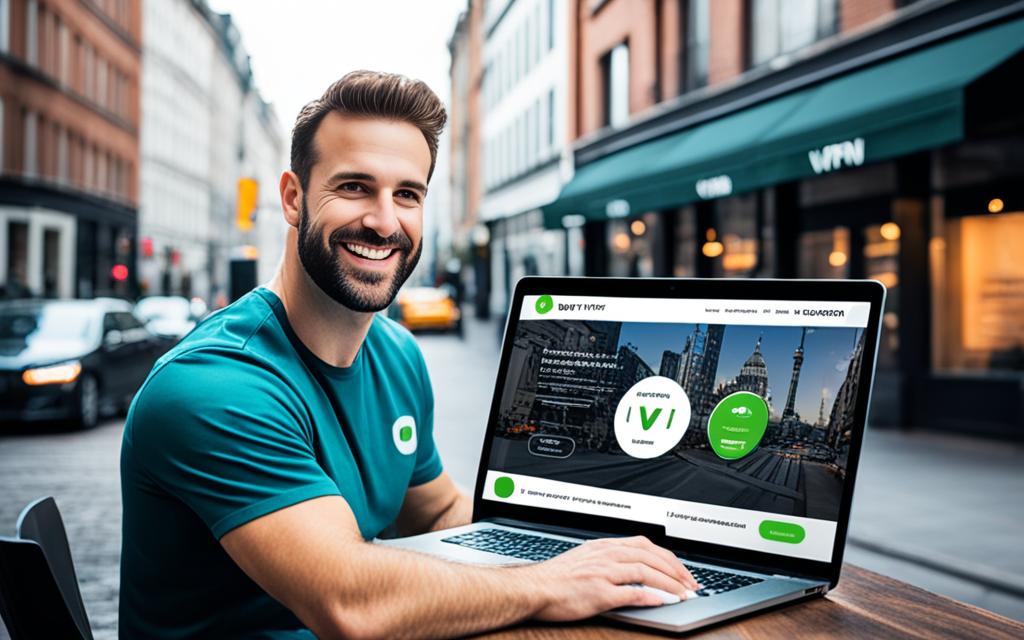Which Statement Describes a VPN?
Which Statement Describes a VPN – Discover what a VPN is and how it can protect your online privacy. Learn about its benefits, how it works, and why it’s essential in today’s digital age.
In an increasingly interconnected world, our online activities leave digital footprints that are vulnerable to prying eyes. This is where a VPN (Virtual Private Network) comes to the rescue.
But what exactly is a VPN, and how does it work? In this comprehensive article, we will delve into every aspect of VPNs, answering the burning question, “Which Statement Describes a VPN?” Along the way, we will explore the ins and outs of VPN technology, its benefits, and why it’s become indispensable in safeguarding our online presence.
What Is a VPN?
A VPN, or Virtual Private Network is a secure tunnel that encrypts your internet connection, making it virtually impossible for anyone to intercept or eavesdrop on your online activities. This encryption ensures that your data remains confidential and secure as it travels between your device and the VPN server.
How Does a VPN Work?
Establishing a Secure Connection
When you connect to a VPN, your internet traffic is routed through a secure server. This server acts as an intermediary between your device and the websites or online services you access. The data exchanged between your device and the VPN server is encrypted, making it incomprehensible to potential snoopers.
Masking Your IP Address
One of the primary functions of a VPN is to hide your IP address. Instead of websites seeing your real IP, they see the IP of the VPN server. This not only enhances your privacy but also allows you to access content restricted to specific regions.
Ensuring Data Integrity
VPNs not only encrypt your data but also ensure its integrity. This means that the data you send and receive remains unaltered during transit, protecting you from potential tampering by malicious entities.

Why Do You Need a VPN?
Protecting Your Privacy
In today’s digital age, protecting your privacy is paramount. With cyber threats and data breaches on the rise, a VPN shields your personal information from prying eyes, including hackers and advertisers.
Bypassing Geo-Restrictions
Streaming enthusiasts rejoice! A VPN enables you to bypass geo-restrictions and access content from anywhere in the world. Watch your favorite shows and movies, no matter where you are.
Secure Public Wi-Fi
Public Wi-Fi networks are convenient but inherently insecure. A VPN adds an extra layer of security, ensuring your data remains safe even when connected to untrusted networks.
Avoiding Throttling
ISPs sometimes throttle your internet speed, especially when streaming or torrenting. With a VPN, your ISP can’t see what you’re doing, preventing speed throttling.
Which Statement Describes a VPN?
To sum it up, a VPN is your digital bodyguard, shielding your online activities from prying eyes, allowing you to access region-restricted content, ensuring the integrity of your data, and safeguarding your online privacy. It’s a must-have tool in an era where online security is of paramount importance.
Which is a Requirement of a Site-to-Site VPN
A requirement of a site-to-site VPN is that both the local and remote networks must have compatible VPN devices or gateways in place. These devices establish a secure tunnel between the two sites, allowing for encrypted data communication between them.
Additionally, both sites typically need to have static IP addresses or a reliable way to address each other over the internet, as these addresses are used to configure and maintain the VPN connection.
Which statement describes a VPN Cisco?
A VPN Cisco, or Cisco VPN, is a type of virtual private network (VPN) solution provided by Cisco Systems, a leading networking and telecommunications company.
Cisco VPNs typically involve the use of Cisco’s networking equipment and software to create secure and encrypted connections over the internet or other networks.
Cisco offers various VPN technologies, including site-to-site VPNs, remote access VPNs, and more, which are designed to enhance network security and provide secure communication for businesses and organizations.
These VPN solutions often use protocols like IPsec (Internet Protocol Security) and SSL (Secure Sockets Layer) to ensure data privacy and integrity while transmitting data across potentially untrusted networks.
FAQs
Is Using a VPN Legal?
Yes, using a VPN is legal in most countries. However, it’s essential to use it for legitimate purposes and not engage in illegal activities while connected.
Can I Use a VPN on My Mobile Device?
Absolutely! Most VPN providers offer mobile apps, making it easy to protect your smartphone or tablet while on the go.
Do Free VPNs Offer the Same Protection as Paid Ones?
Free VPNs can provide basic protection, but paid VPNs often offer better security, faster speeds, and more server locations to choose from.
Can I Use a VPN for Torrenting?
Yes, a VPN is an excellent tool for torrenting as it hides your IP address and encrypts your data, ensuring your torrenting activities remain private.
Will a VPN Slow Down My Internet Speed?
Using a VPN can lead to a slight reduction in internet speed due to encryption and routing through a VPN server. However, with a reputable VPN provider, the difference is often negligible.
How Do I Choose the Right VPN?
When selecting a VPN, consider factors like security protocols, server locations, speed, and user reviews. It’s essential to choose a VPN that aligns with your specific needs.
Conclusion
In a world where online privacy is increasingly threatened, a VPN stands as a reliable guardian of your digital presence. It offers protection, access, and peace of mind, all rolled into one essential tool.
So, the next time you wonder, “Which Statement Describes a VPN?” remember that it’s your shield against the uncertainties of the digital realm.




